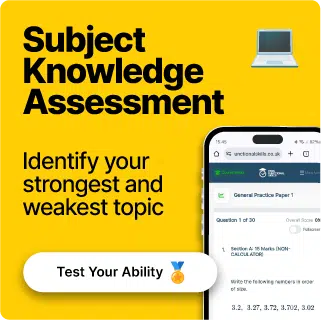Reading: Specialist Words
Specialist Words
Specialist words are words which are specific to a certain profession or subject area.
Understanding common specialist words can be very helpful when reading and analysing texts.
Make sure you are happy with the following topics before continuing:
How to spot a ‘Specialist Word’
Specialist words can usually be found in texts where the writer and reader both have specialist knowledge on the subject.
Makes sense, right?
For example, some texts which are extremely likely to include some specialist words are…
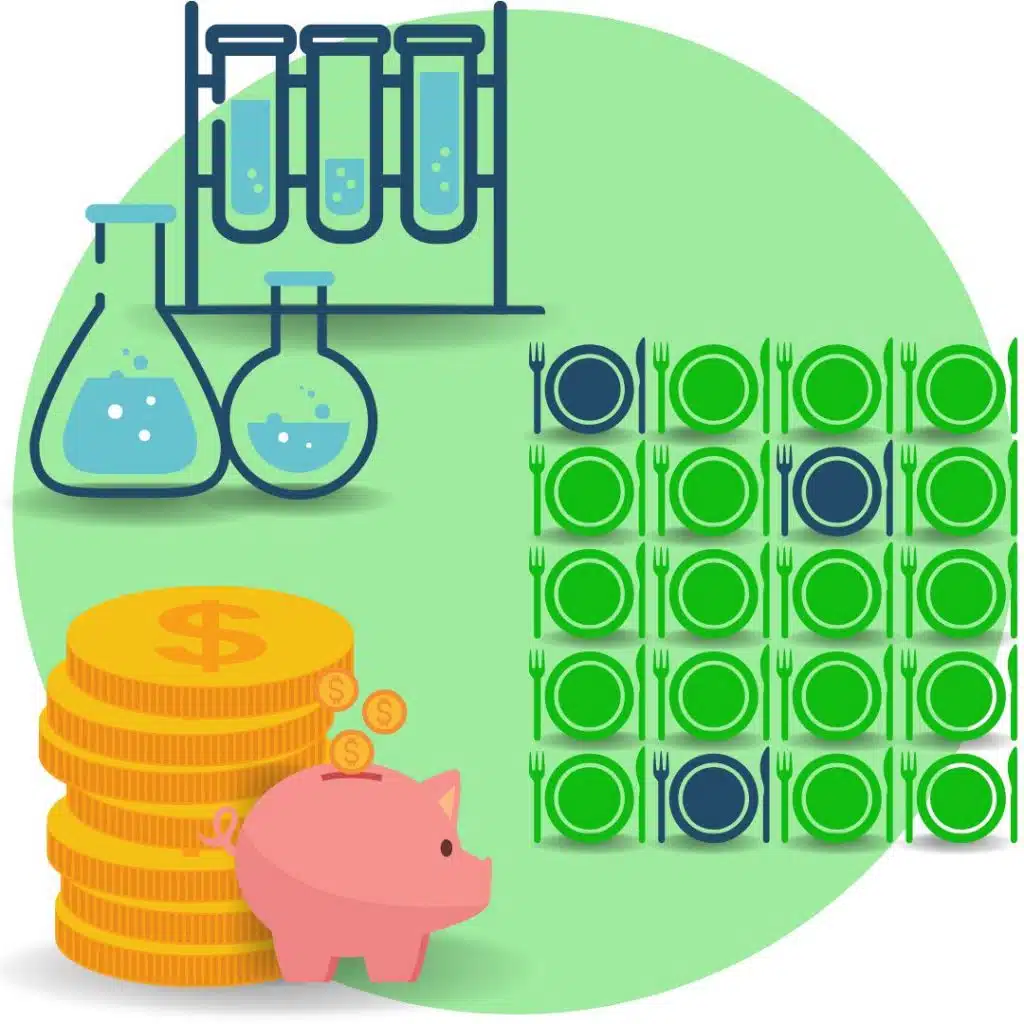

A technical report on a medical drug trial
A complex recipe for a large-scale dinner
A business’ yearly accounting summary
But, not all texts which include specialist words will rely on the reader knowing them all.
Some examples of texts where the writer might include specialist words are…


A magazine article on a particular topic
A recipe in a home cooking book
An email from a letting agent about an available property
So, we can see that specialist words may appear in all kinds of texts, but are more common in certain types of texts.
From these examples we can see that more formal, professional texts are likely to include lots of specialist words, and more casual or informal texts are likely to include a few specialist words.
Follow Our Socials
Our Facebook page can put you in touch with other students of your course for revision and community support. Alternatively, you can find us on Instagram or TikTok where we're always sharing revision tips for all our courses.
What Next?
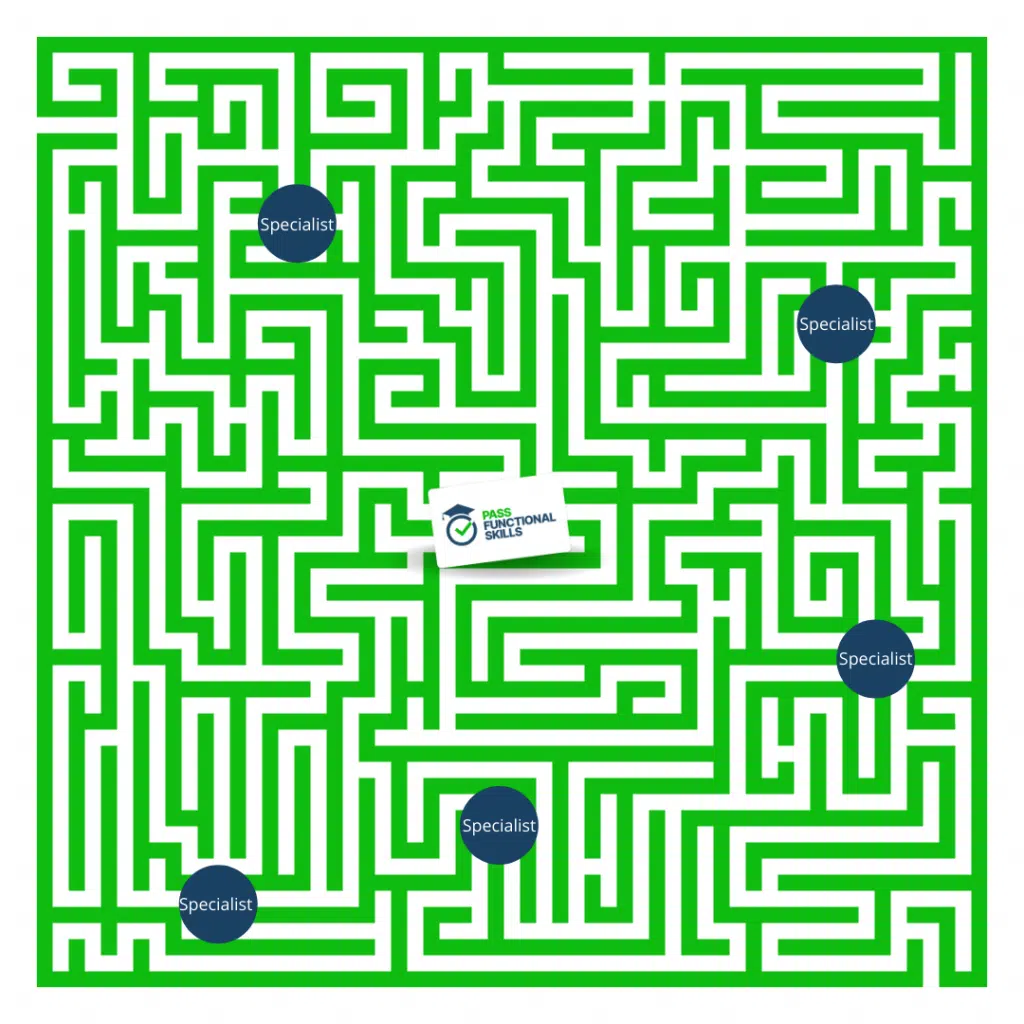

Texts can be a bit of a maze, and spotting a specialist word that you’re not familiar with can feel worrying.
Helpfully though, there are three main ways you can work out their meaning, even if they are unfamiliar.
1) Context
Context is just a fancy way of saying ‘the bigger picture’.
So, when we are trying to find the meaning of a specialist word, and look at the context, we need to look at what the text is about overall.
For Example:
If the specialist word you see is ‘Makeup’…
…and the context is a health and beauty textbook…
…then you know that the ‘Makeup’ is referring to cosmetic products.
i.e. This kind of makeup comes from an ancient form of body decoration.
However…
If the specialist word you see is ‘Makeup’…
…and the context is a biology textbook…
…then you know that the ‘Makeup’ is referring to the contents of something.
i.e. The genetic makeup of a human being is deeply complex.
2) A Glossary
A glossary is an alphabetical list of words and definitions in a text, which the writer thinks the reader may not understand fully.
They are often present in professional or academic texts, i.e. in reports.
This is the second place where you can find the definition of your specialist words.
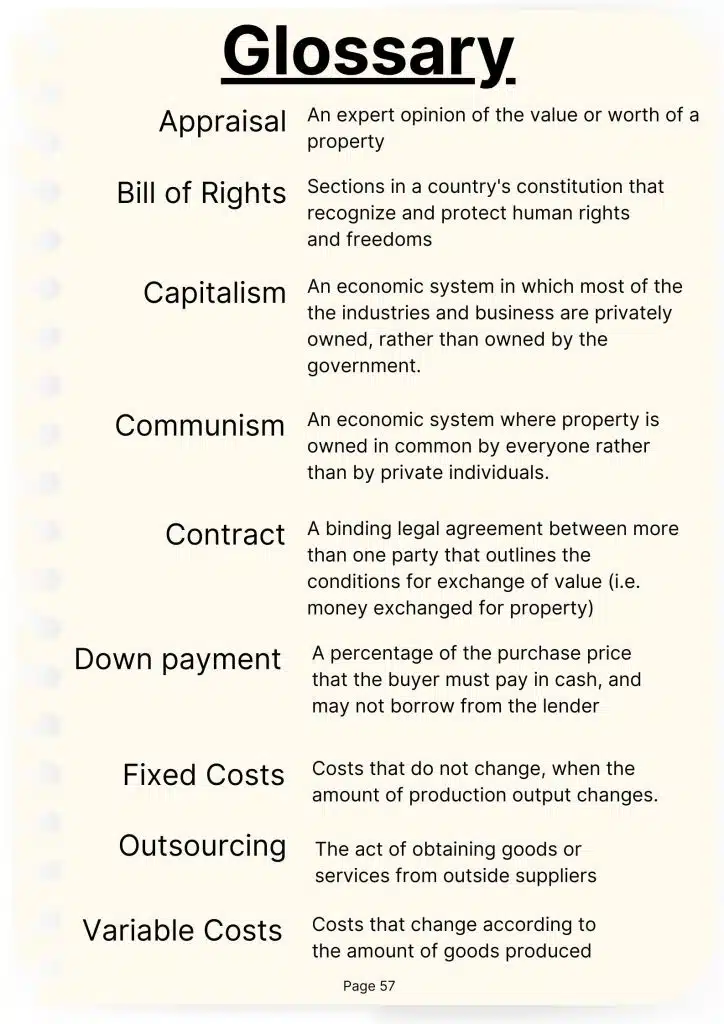

Glossaries typically look like this…
Can you see how all of the definitions in this glossary are on the same subject?
This the main difference between a dictionary and a glossary, as a glossary gives you specific definitions, whilst a dictionary gives you all definitions.
Now, talking of dictionaries…
3) A Dictionary
Looking in a dictionary is the third way for you to find the meaning of a specialist word.
If you can’t work out the meaning from the context, and the writer has not included a glossary, you can use a dictionary to discover the word’s definition.
A dictionary is a book of words placed in alphabetical order, and gives information about the words.
This includes:
- Word type (i.e. a verb, a noun, an adjective)
- Word definition (the meaning of the word)
- How to pronounce the word
- The origin of the word (where the word comes from originally)
A dictionary page will typically look like this!
See if you can spot each of the dictionary components identified here…
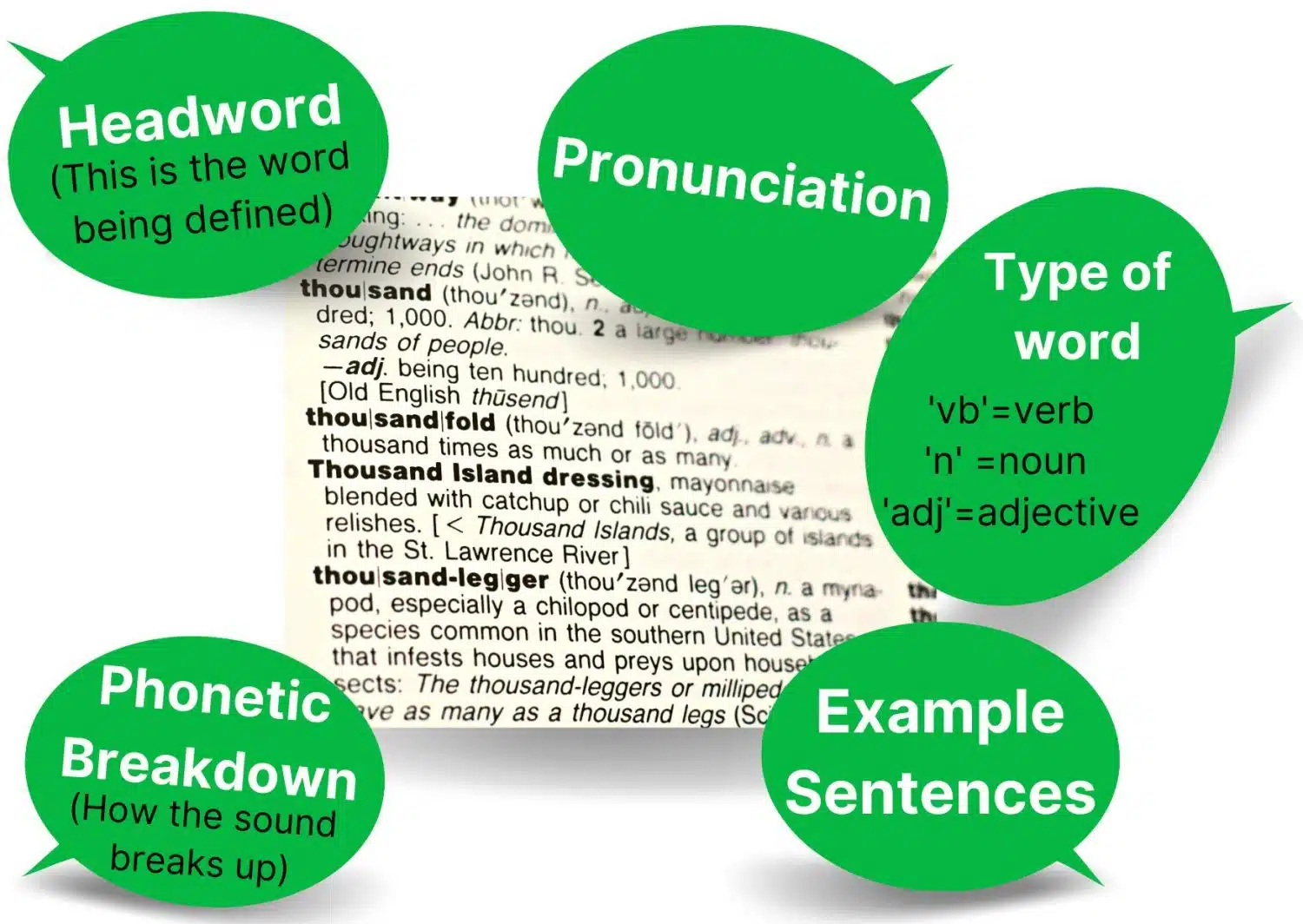
Specification Points Covered
L1.12 – Recognise that language and other textual features can be varied to suit different audiences and purposes
L1.13 – Use reference materials and appropriate strategies (e.g. using knowledge of different word types) for a range of purposes, including to find the meaning of words
L1.16 – Recognise vocabulary typically associated with specific types and purposes of texts (e.g. formal, informal, instructional, descriptive, explanatory and persuasive)
L1.17 – Read and understand a range of specialist words in context







